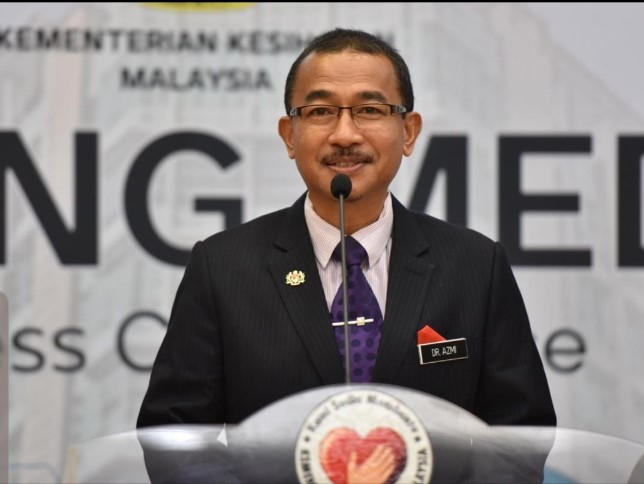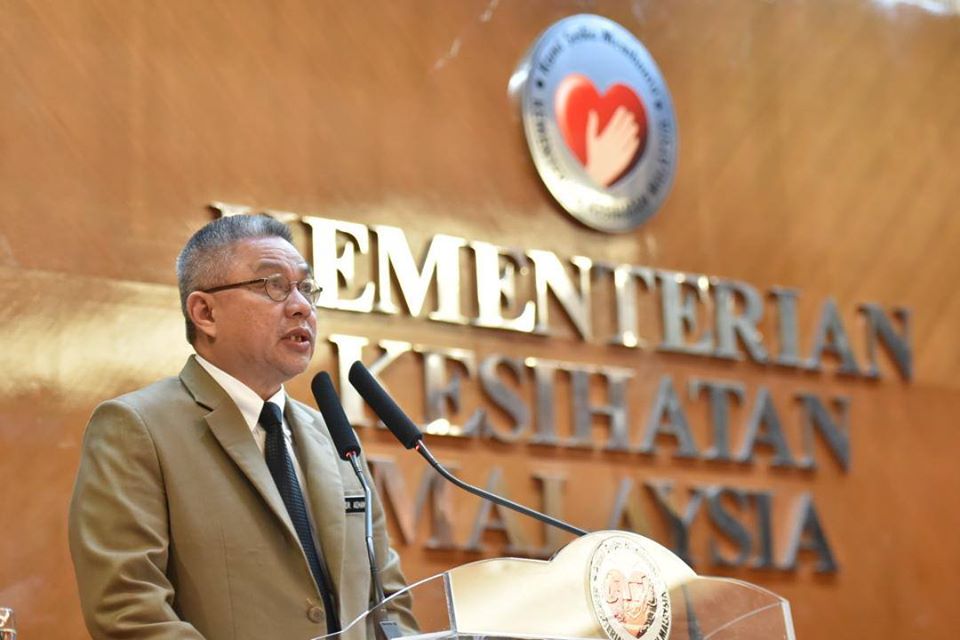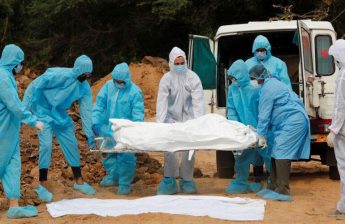KUALA LUMPUR, July 24 — The Perikatan Nasional (PN) government has released a national 10-year plan for health care that focuses on health promotion, community empowerment, and a clean environment.
The Agenda Nasional Malaysia Sihat (ANMS) 2020-2030, dubbed a “New Deal”, will be implemented after the end of the Movement Control Order (MCO) amid the Covid-19 outbreak.
The Recovery Movement Control Order is set to end on August 31, but it is uncertain if the government will extend movement restrictions amid a growing number of coronavirus cases in the country that have mostly hit double digits daily since July 17, and multiple new clusters.
“ANMS will start from the year 2020 until 2030, with the implementation of Phase 1 (2020-2022) to keep Malaysians from all backgrounds healthy physically, mentally, and socially, as well as to practice new norms in health,” Deputy Health Minister Dr Noor Azmi Ghazali told Ledang MP Syed Ibrahim Syed Noh (PKR) in a written Parliament reply on July 22.
New norms refer to behaviours in the Covid-19 pandemic to prevent infection from the viral disease, like washing hands frequently and social distancing.
Health Minister Dr Adham Baba said the Sihat Bersama 2030 plan mooted by the previous Pakatan Harapan (PH) government under then-Health Minister Dzulkefly Ahmad was not an official policy of the Ministry of Health (MOH) because it had not been brought up for the PH administration’s consideration then.
“However, after reviewing the plans proposed under that policy, we found that most of them were continuations of suggestions for improvement that were planned by previous administrations, such as the National Health Policy, 1Care for 1Malaysia, and the Malaysia Health System Review,” Dr Adham said in a written Parliament reply to Setiu MP Shaharizukirnain Abd Kadir (PAS) on July 13.
He explained that the post-MCO New Deal, which requires Cabinet approval, will be implemented in stages from 2020 to 2030, comprising various ministries, non-governmental organisations (NGOs), and the private sector.
Dzulkefly told Bernama in an interview published last December 23 that the Sihat Bersama 2030 policy, which he had planned to raise in Cabinet for approval in January, contained health care reforms. The three pillars of the plan were public sector transformation, private sector regulatory reform, and a sustainable health financing system.
Advocates have long called for a reform of the health financing system, saying that the government spends too little money on health and that new sources of revenue are needed beyond the current pool of funds from the general taxation base. The-then PH government allocated the Ministry of Health (MOH) RM30.6 billion for Budget 2020, marking an RM1.9 billion increase from the previous year’s national budget, but still falling short of 4 per cent of Malaysia’s gross domestic product (GDP).
Barisan Nasional (BN) was forced to abandon its 1Care social health insurance plan that was proposed in 2012 after the public opposed a maximum 10 per cent deduction of a household’s monthly gross income for contribution to a national health financing body. 1Care had also proposed assigning doctors to people and limiting the number of doctor visits a year.
PN’s “New Deal”, or the ANMS, doesn’t mention health financing reform. PN took power in March, just before Covid-19 broke out in full force in Malaysia, ravaging the economy after a strict seven-week nationwide lockdown.
The ANMS — which comprises three main fields: personal hygiene, environmental cleanliness, and healthy living — focuses on four pillars: strengthening promotion of healthy living, strengthening health promotion services (wellness), empowering personal health, and strengthening environmental cleanliness, according to Dr Noor Azmi’s written Parliament reply.

Pillar 1: Strengthening Promotion Of Healthy Living
- Promoting a smoke-free generation, physical activity, safe and healthy diet, and healthy mind.
- Continued promotion of the practice of new norms.
- National Immunisation Awareness Programme for the entire population.
- Car-Free Morning campaign.
- Community empowerment with the approach of “Cegah dan Didik, Amal, Patuh dan Pantau” (CAPP) [Prevent and Educate, Practice, Comply and Monitor].
Pillar 2: Strengthening Health Promotion Services (Wellness)
- Online quit-smoking services (QUITLINE).
- Health promotion services at the Wellness Hub by integrating Peka B40, a health screening programme first introduced by then-Minister Dzulkefly last year.
- Health promotion services through mobile trucks in the community.
- Expanding dental services in the community, especially in the interiors, minority groups, and the needy.
- Promote dental health services.
- Expand coverage of dental health through Mobile Dental Clinics.
- Expanding access to medicines by strengthening value-added pharmacy services.
- Pharmacy Integrated Community Care (PICC) service.
- Medicine information services by strengthening the National Pharmacy Centre Service.
Pillar 3: Empowering Personal Health
- Community empowerment in prevention, early screening, and early intervention for non-communicable disease (NCD) risk factors through the MyKOSPEN programme.
- Community empowerment in dengue prevention through activities like Search & Destroy and gotong royong via the COMBI (Communication for Behavioural Impact) team.
- Community empowerment in the aspects of treatment compliance, new norms, evaluating one’s personal health status, and regular health screening, including personal monitoring of the effectiveness and side effects of medicines.
Pillar 4: Strengthening Environmental Cleanliness
- Smoke-free initiatives.
- Award and certification of health promotion initiatives.
- Promotion of KOSPEN Plus (workplace).
- Promoting recreational or public parks to encourage physical activity.
- Programme on increasing knowledge, attitudes, and practices in maintaining good health.
- Programme on increasing awareness and the culture of hygiene of self, family, community, and the environment.
- Programme on the culture of discarding trash the right way through the “Throw Rubbish in The Trash Can Campaign”.
- Programme on raising community awareness and responsibility in maintaining toilet cleanliness.
- Programme on increasing a sense of responsibility towards cleanliness among hawkers, businesses, and food operators.
- Programme on encouraging the community to reduce the use of plastic.
- Appointing Cleanliness Ambassadors at the education and community institutional level.
- Increasing cleaning activities to create a clean community.
- Programme on raising community awareness in cleanliness to prevent infectious diseases.
- “Kempen Berani Tegur” (Speak Out Campaign) in the community on environmental cleanliness.
Dr Noor Azmi also said the “Cegah dan Didik, Amal, Patuh dan Pantau” (CAPP) community empowerment approach aimed to educate the public so that people become frontliners themselves in preventing Covid-19 infection in the community. CAPP is among the activities under the District Risk Reduction Programme (DRRP) that aims to protect green zones to be free from coronavirus and to turn yellow districts into green ones in 14 days.
“The CAPP and DRRP approach must be implemented holistically in the field because Covid-19 infection is the true test of self-discipline and community social responsibility,” Dr Noor Azmi said.
“To strengthen the implementation of the CAPP and DRRP initiatives, cooperation and commitment from other ministries and agencies are necessary. Therefore, the Community Awareness and Empowerment To Fight Covid-19 Programme will be launched by the Prime Minister in August 2020.”








